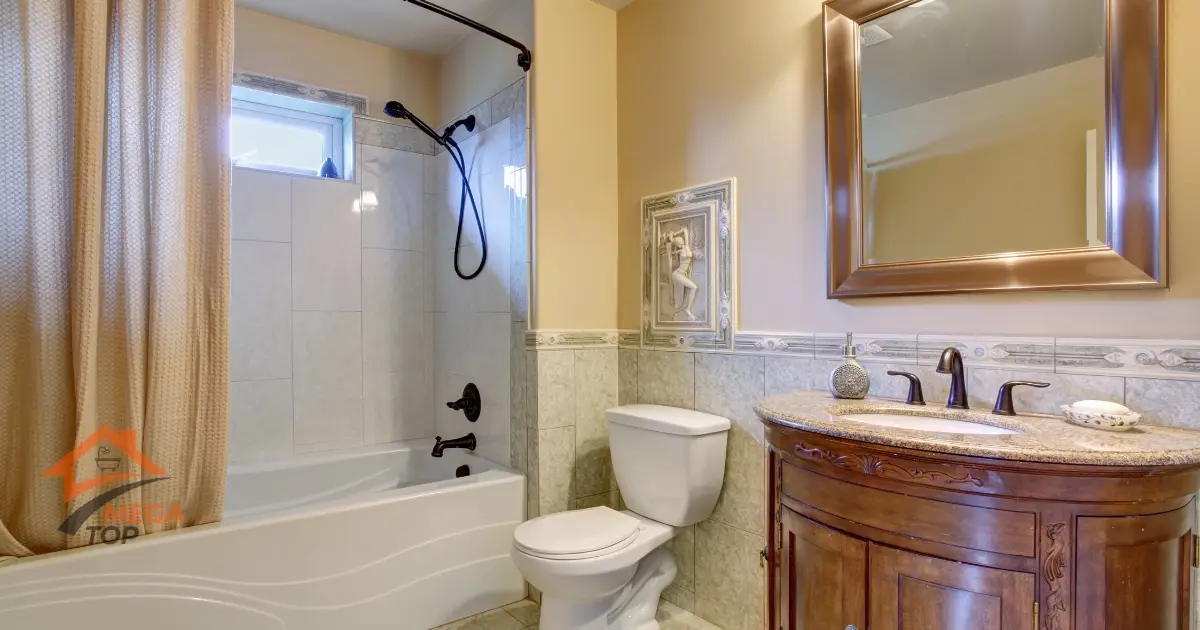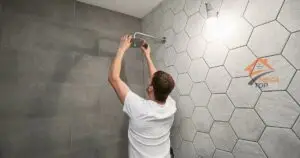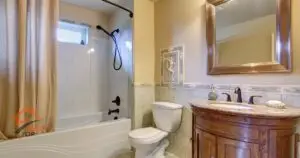Why Homeowners Are Choosing Tub-to-Shower Conversions
The growing trend towards shower installations
Homeowners are increasingly opting for tub-to-shower conversions as part of their bathroom remodels. With modern lifestyles emphasizing convenience and efficiency, showers offer a quicker, more practical option compared to traditional bathtubs.Benefits of showers in modern bathroom design
Showers allow for a sleek, minimalist look that complements contemporary bathroom designs. They also accommodate advanced features like rain showerheads, steam options, and frameless glass doors, elevating the space both in terms of function and aesthetics.
When Is It the Right Time to Convert?
Key signs you should consider a tub-to-shower conversion
If you rarely use your bathtub or find it difficult to step over the high edge, it may be time to consider a conversion. Other signs include a need for better accessibility or simply wanting to update an outdated bathroom.Assessing your bathroom’s layout and space
The layout of your bathroom plays a crucial role in deciding whether a tub-to-shower conversion is a good idea. Smaller bathrooms can benefit greatly from the space-saving nature of showers, while larger bathrooms can use a shower to create a modern spa-like experience.
Pros of a Bathtub-to-Shower Conversion
Maximizing Space in Smaller Bathrooms
- How showers create more usable floor space
Converting a bathtub into a shower frees up space, making smaller bathrooms feel more open. This is particularly beneficial in homes where bathroom space is limited, allowing for more storage or simply a less cluttered feel.
Improved Accessibility and Safety
- Why walk-in showers are ideal for elderly and disabled users
Walk-in showers provide easy access for individuals with mobility challenges. Unlike bathtubs, which require stepping over a high edge, walk-in showers have low or no thresholds, reducing the risk of falls. They can also be fitted with grab bars, benches, and non-slip flooring for added safety.
Modern Aesthetic and Home Value
- Enhancing bathroom appeal with a sleek shower design
A well-designed shower can instantly modernize the look of your bathroom. Frameless glass enclosures, rain showerheads, and elegant tile work give the space a luxurious feel, making it more attractive to potential buyers. For many homeowners, this modern upgrade increases the resale value of their home.
Potential Drawbacks of Tub-to-Shower Conversions
Impact on Property Value for Families
- Why families with small children might prefer a bathtub
While showers are highly desirable for many, families with small children may still prefer a bathtub. If you’re considering selling your home, removing the only tub could limit your market to buyers without young kids. It’s important to consider the needs of potential future owners.
Installation and Plumbing Challenges
- Common challenges during the conversion process and how professionals handle them
Converting a bathtub to a shower can involve rerouting plumbing or adjusting water pressure to suit the new setup. These tasks often require professional expertise to avoid complications like leaks or improper drainage, which can lead to expensive water damage over time.
How to Plan a Successful Bathtub-to-Shower Conversion
Choosing the Right Shower Design
- Popular shower designs: Walk-in, framed, and frameless
Selecting the right shower design is crucial for both aesthetics and functionality. Walk-in showers are popular for their accessibility, while frameless glass showers create a clean, modern look. Framed showers, on the other hand, offer a more traditional and cost-effective option.
Selecting Quality Materials for Your Shower
- Materials that improve durability and appearance
High-quality tiles, sturdy shower doors, and corrosion-resistant fixtures are key to ensuring your shower looks great and lasts for years. Options like ceramic or porcelain tiles, tempered glass doors, and stainless steel fixtures offer durability and style.
Considering Water Pressure and Drainage
- Ensuring your plumbing supports a shower conversion
Before starting your conversion, it’s essential to check that your plumbing system can handle the demands of a shower. This includes ensuring adequate water pressure and that your drains can handle the increased water flow to prevent any issues down the line.
Professional vs. DIY Tub-to-Shower Conversion
Cost Comparison: DIY vs Professional Installation
- A look at the true costs of each option
While a DIY approach may seem more affordable at first glance, the potential for costly mistakes often outweighs the savings. Professionals have the experience to complete the job efficiently, minimizing the risk of errors that could lead to future repairs.
Why You Should Hire a Professional
- Benefits of expert installation: accuracy, safety, and efficiency
Hiring a professional ensures your tub-to-shower conversion is done to the highest standards. Professionals can handle complex tasks like waterproofing, plumbing modifications, and tile installation with precision, ensuring the job is done right the first time.
Common DIY Mistakes to Avoid
- Pitfalls that homeowners often face with DIY conversions
One common DIY mistake is improper sealing, which can lead to leaks and water damage. Other issues include inadequate slope for drainage and poor tile work, both of which can cause long-term problems. A professional can help you avoid these pitfalls, saving you time and money in the long run.
Compare DIY vs Professional Services
Risks of DIY Tub-to-Shower Conversions
- How improper installation can lead to leaks and water damage
DIY conversions often lack the expertise required to ensure proper waterproofing and drainage, resulting in leaks that can damage your home’s structure. The cost of repairing water damage far outweighs the savings from a DIY approach.
Benefits of Hiring a Professional for Your Conversion
- Case studies where professional work saved homeowners time and money
Professionals not only save you the hassle of dealing with plumbing and installation issues, but they also ensure the job is completed quickly and correctly. Homeowners who hire professionals often avoid common mistakes and enjoy peace of mind, knowing their new shower will be safe and functional for years to come.
FAQ
Converting a bathtub to a shower can be complex, involving plumbing, waterproofing, and design adjustments. It's best to hire a professional for a seamless installation.
It depends on your home's location and target buyers. A shower can add value in many cases, but families with small children may prefer a bathtub.
A typical conversion takes about 1-2 weeks, depending on the complexity of the design and any plumbing modifications. Hiring professionals can ensure timely completion.
Converting a tub to a shower is often more cost-effective due to lower material and labor costs, but it depends on your specific project needs.
Absolutely! Walk-in showers are a popular option for conversions, offering accessibility and modern design. Professional installation is recommended to ensure proper waterproofing and drainage.






